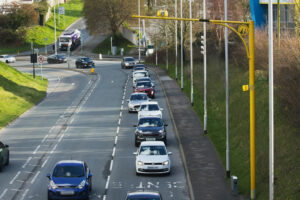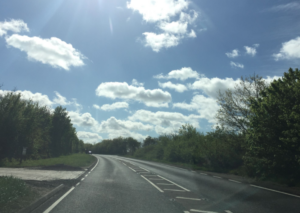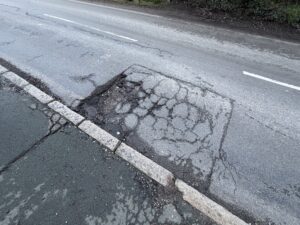A major survey by the RAC suggests the majority of drivers want to see more average speed enforcement on motorways and trunk roads and an increased focus on catching people using hand-held mobiles while driving.
The RAC’s “Report on Motoring 2020 – driving through the pandemic” study asked the opinion of more than 3,000 drivers who responded that one of their biggest concerns was the danger they face from other drivers. 79% called for camera technology to be used to catch illegal phone use, while three-in-ten said their main worry when driving was illegal or reckless behaviour of others, such as road rage or drink-driving as well as phone use.
There is strong support for average speed cameras being seen as a fair way to enforce limits on roads. 58% of those asked said they would like to see greater use of average-speed cameras on motorways, with the technology being the favoured method of enforcement for 40 and 50 mph-limit roads too. Only when monitoring slower speeds do older-style fixed cameras become more popular.
Geoff Collins, Deputy Managing Director of the UK’s biggest average speed enforcement technology supplier, Jenoptik, commented, “We’ve long known that road users understand and appreciate a well designed average speed camera system, and the benefits are seen on every road type from free flowing motorways to rural single carriageways. It is highly likely that we will see more use of SPECS technology on trunk roads, particularly now we have shown their effectiveness at not only improving road safety but also air quality.”
Elsewhere in the report, much is made of the state of the roads, with 14% of respondents, representing almost six million people in total, saying the condition and maintenance of local roads is their number-one concern, up from 10% in 2019. Nearly half of those questioned said they’d be willing to pay 2p a litre more in fuel duty if it was used to pay for pothole repairs.
“I’m not sure how much local road maintenance was done during lockdown. Spring is when much of the damage caused by winter weather is addressed,” said David Bizley, RAC former Chief Engineer and Technical Director “I suspect the picture is pretty fragmented with each local authority behaving slightly differently.”
Drivers are also prepared to go electric in the future, but not yet. 56% of those questioned said they’re more likely to opt for a plug-in hybrid car as an intermediate step before going fully electric, but 78% of motorists think that pure electric cars are still too expensive when compared to conventional vehicles of a similar size. 64% say manufacturers need to offer a wider range of EVs before they would consider buying one.
When it comes to the Coronavirus crisis, the report notes, “The nationwide lockdown restrictions imposed in March unsurprisingly led to a marked decline in traffic levels. But the 2020 Report on Motoring has found that motorists are now more reliant on their vehicles than in the past – largely due to concerns about the safety of public transport and a lack of adequate alternatives.”
Long term, most motorists (55%) do not expect their car use to change as the UK comes out of the pandemic. Of the 22% who expect to use their vehicles more, the main reasons are for leisure (83%) and commuting (50%).
Read the report in full here.
(Picture – Jenoptik)
























